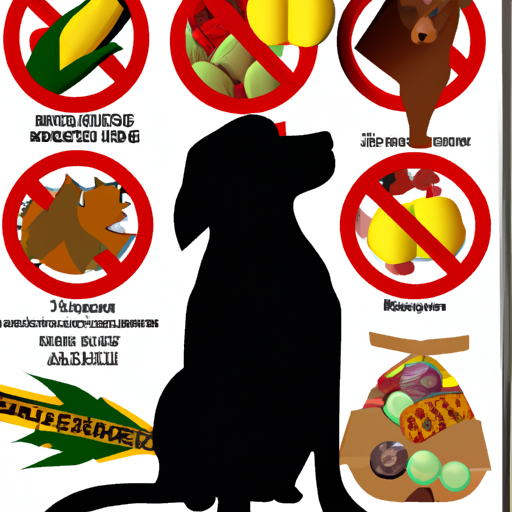As a caregiver, you understand the importance of keeping your loved ones safe and healthy. This extends to your four-legged family members too. In this guide, we’ll delve into the world of canine nutrition, specifically, what dogs can’t eat.
H2: Understanding Canine Nutrition
Every caregiver knows, proper nutrition forms the backbone of overall health. Dogs are no exception. While they may seem willing to eat just about anything, certain human foods can be harmful, even deadly, to them.
Dogs are omnivores, meaning they can eat a mixture of meat and plant-based foods. However, their diet is not as varied as ours. They thrive on a balanced diet of proteins, carbohydrates, fats, vitamins, and minerals – similar to us, but with different proportions.
H2: Dangerous Foods for Dogs
Let’s dive into the specifics. Here are some foods you should never share with your dogs:
-
Chocolate: This is a well-known no-no. Chocolate contains theobromine, which dogs cannot metabolize effectively.
-
Grapes and Raisins: These can cause kidney failure in dogs. Even a small amount can make a dog sick.
-
Onions and Garlic: These can destroy a dog’s red blood cells, leading to anemia.
-
Avocado: Persin, found in avocados, can cause diarrhea, vomiting, and heart congestion in dogs.
-
Alcohol: This can cause vomiting, diarrhea, decreased coordination, central nervous system depression, difficulty breathing, tremors, and even death.
H2: Safe Alternatives for Dogs
It’s not all doom and gloom, though. There are many human foods that are perfectly safe for dogs to eat. Here are a few:
-
Peanut Butter: A classic treat for dogs. It’s a great source of protein and healthy fats.
-
Cooked Chicken: A good source of protein. Can be added to your dog’s regular diet.
-
Carrots: These are low in calories and high in fiber and vitamins.
-
Apples: They are a good source of vitamins A and C, and fiber.
-
Oatmeal: This is a good source of fiber. It’s also beneficial for dogs with wheat allergies.
H2: Observing Your Dog’s Reaction to Food
As a caregiver, your keen observation skills are essential. Even with safe foods, watch out for any unusual reactions in your dog.
Signs of a food allergy or intolerance can include skin rashes, hives, itching, nausea, vomiting, diarrhea, and difficulty breathing. If you notice any of these symptoms after introducing a new food, contact your vet immediately.
H2: FAQ
Q: Can my dog eat dairy products?
A: Some dogs can tolerate dairy, but others may experience digestive issues like gas and diarrhea.
Q: Is it okay for my dog to eat raw meat?
A: Raw meat can carry bacteria like salmonella and E. coli, which can be harmful to pets and people.
Q: What fruits can my dog eat?
A: Apples, bananas, and oranges are safe for dogs. However, avoid grapes and raisins.
Q: Can dogs eat bread?
A: Yes, but in moderation. Avoid bread dough as it can expand in their stomach.
Q: What should I do if my dog eats something toxic?
A: Contact your vet or an emergency animal hospital immediately.
Remember, the best way to keep your dogs healthy and happy is to feed them a balanced diet made specifically for dogs, and always consult your vet before introducing new foods into their diet.



